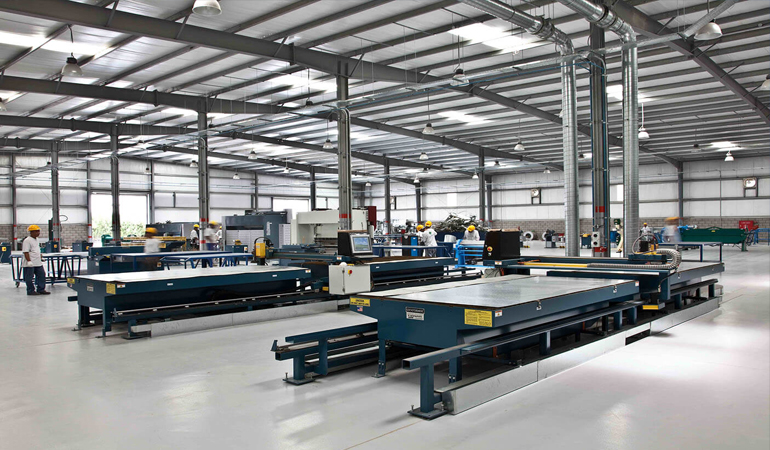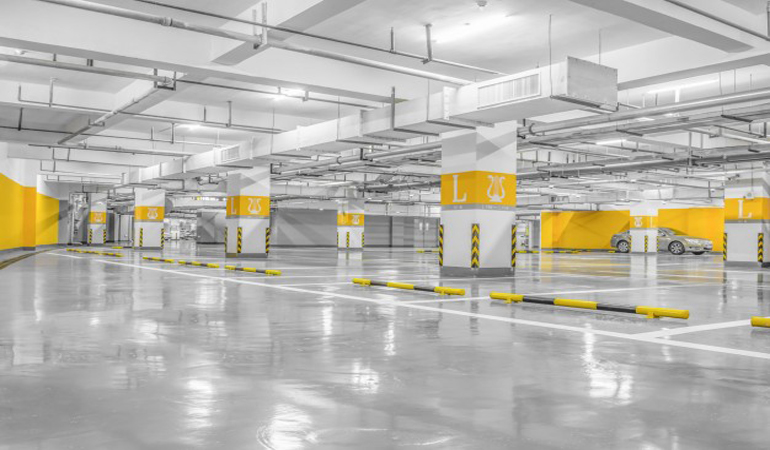Industries
Industries are often at work in places that produce toxic airborne particles, hazardous chemical fumes, dust, and other harmful vapors. To mitigate the effect of these floating dangers, proper industrial ventilation needs to be installed. Put simply, industrial ventilation gets rid of the bad air and replaces it with fresh air from outside. Ventilation is a necessary part of any factory that will produce harmful air pollutants in a confined space where employees work. It not only cleans the air employees will breathe, it also allows for better temperature control and reduces the risk of fire in the facility.
Warehouses
Air quality in any work environment is crucial for the safety, well-being and comfort of employees – this rings particularly true for those working in a warehouse environment. In general, warehouses pose a number of hazards to those working inside them, and poor ventilation is no exception.
Warehouse ventilation is vitally important. Understanding the different impact of temperature levels that come with the change of season and implementing the right systems for your environment will ensure the well-being, safety and comfort levels of employees, as well as the maintenance of products, stock and machinery year-round.
Basements
If the room is often unattended, primarily used for storage, or effectively unfinished, then there's a good chance you should ventilate your basement. Basement ventilation is typically general ventilation, as it needs to combat all the sources of pollutants around it.
Moisture ridden basements and crawl spaces provide a thriving environment for numerous contaminants such as mold and dust mites. These dangerous contaminants have the ability to disperse throughout while spreading odor and contaminating your entire home.









